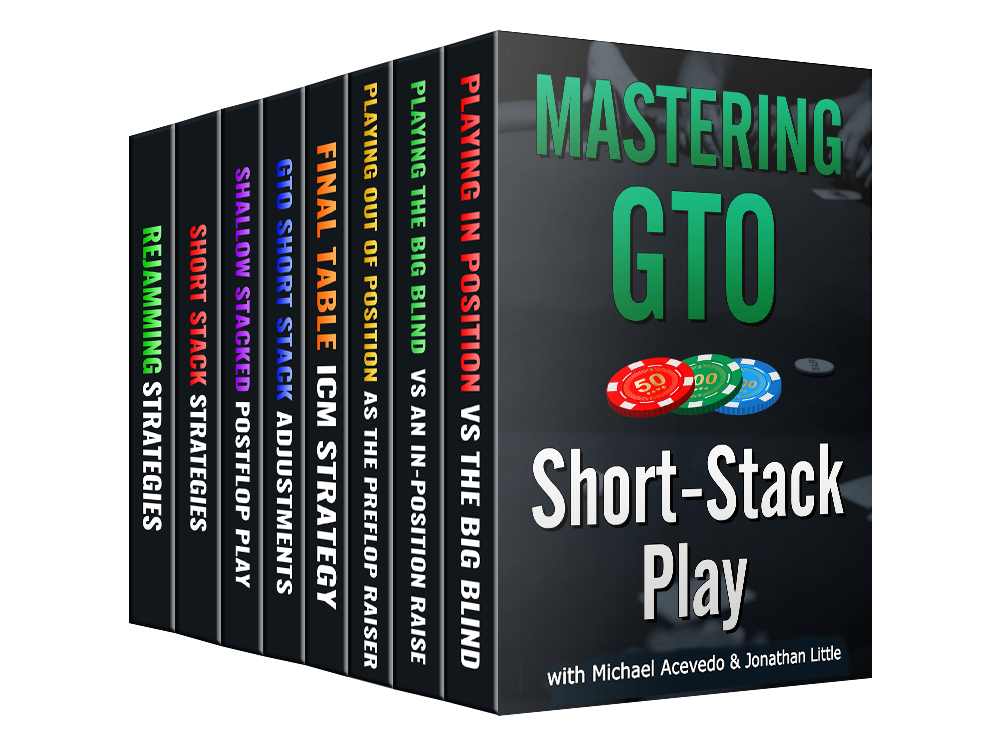Description
Mastering GTO Short-Stack Play with Jonathan Little – Elevate Your Tournament Strategy
Short-stack spots decide tournaments. Mastering GTO Short-Stack Play gives you a clear, download-ready system for 15–25bb so you stop guessing near bubbles and final tables. If you want a broader framework to plug this into, Kevin Rabichow’s plan-first approach in RIO – The Game Plan pairs well for weekly study structure. For background on ICM math that drives many short-stack choices, see the primer: https://en.wikipedia.org/wiki/Independent_Chip_Model.
Short-Stack Tournament Strategy: 15–25bb Essentials
- Position-led push/fold and 3-bet shove ranges you can trust under pressure.
- Postflop at low SPR: small c-bet plans, turn leverage, and river discipline.
- Fast GTO rules you can apply live/online without overloading the clock.
Looking to sharpen decision process as you add these ranges? The conceptual toolkit in Solve For Y – Advanced Principles helps align your reasoning with your new frequencies.
GTO Short-Stack Decisions vs. Exploits
- When to stay balanced vs. pools that overfold or overcall.
- Adjusting shove/call thresholds vs. wide SB/BB tendencies.
- Using blocker logic to time thin value and selective bluffs.
For preflop range confidence beyond 25bb, study a tournament macro course like Raise Your Edge – Tournament Masterclass.
Study Kit & Tools (Charts, Quizzes, Drills)
- Ordered video lessons from fundamentals to ICM nodes.
- Downloadable charts for common stacks/positions.
- Quizzes and hand tagging to build automaticity.
If you prefer solver-heavy reps to validate spots, add BitB PIO Masterclass for tree reading and node-locking routines.
Who Should Study Mastering GTO Short-Stack
- MTT grinders who stall near bubbles or ladders.
- Cash players moving to MTTs and seeking a cheap short-stack on-ramp.
- Beginners asking what are the best poker courses for beginners in tournaments—start here, then scale to full-stack modules.
For bite-size fundamentals between sessions, see CardQuant’s starter pack: Small Stakes Solutions.
FAQ: Jonathan Little’s Mastering GTO Short-Stack Course
What’s the main focus?
A fast framework for push/fold, 3-bet shoves, and simplified postflop at 15–25bb—rooted in GTO and built for execution.
Why is short-stack skill so important?
You’re often <40bb in MTTs; EV swings are largest when stacks are short and ICM is live (see Nash background: https://en.wikipedia.org/wiki/Nash_equilibrium).
Beginner-friendly?
Yes. Concepts layer from simple to ICM-heavy decisions, with quizzes to lock in thresholds.
What should I study next?
Blend this with a full MTT roadmap (e.g., RYE Masterclass) or process training (Solve For Y). Then cycle hands → rewatch modules → retest.
Ready for more download poker courses from the best poker training sites? Visit our shop and build your tournament study plan.
